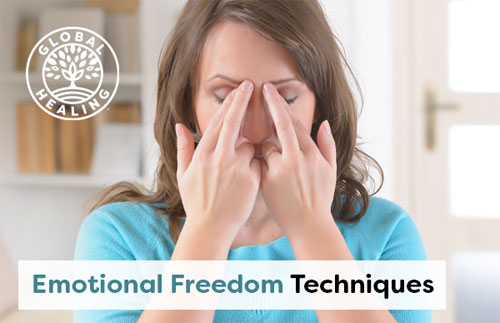Practicing gratitude during covid-19 pandemic
To say that 2020 has been a challenging year for most of us is a profoundly serious understatement. While it’s easy to fall into quiet despair, now might actually be the best time to cultivate beneficial mental health habits, one of them being gratitude.

Paradoxically, suffering can yield a grateful heart, if approached with care and mindfulness. As reported by CNN Health: “In his 1994 book, ‘A Whole New Life,’ Duke University English professor Reynolds Price describes how his battle with a spinal cord tumor that left him partially paralyzed also taught him a great deal about what it means to really live.
After surgery, Price describes ‘a kind of stunned beatitude.’ With time, though diminished in many ways by his tumor and its treatment, he learns to pay closer attention to the world around him and those who populate it.
A brush with death can open our eyes. Some of us emerge with a deepened appreciation for the preciousness of each day, a clearer sense of our real priorities and a renewed commitment to celebrating life. In short, we can become more grateful, and more alive, than ever.”
Inspirational speaker and YouTube sensation Claire Wineland also embodied this truth. This lovely young woman died in 2018 at the age of 21 from a massive stroke following an otherwise successful lung transplant. Born with cystic fibrosis – a progressive and terminal genetic disease – she spent the bulk of her short life inspiring people to “love what is,” to love every breath; to not waste life and to make a life that matters.
Start a Gratitude journal
Enhancing your well-being can be as simple as taking some time each day to reflect on what you’re thankful for. A simple and proven way of doing this is to keep a gratitude journal.
Gratitude is neurally linked with happiness. Strengthen one and you automatically boost the other. In one study, participants who kept a gratitude diary and reflected on what they were grateful for just four times a week for three weeks improved their depression, stress and happiness scores. In another study, people who kept a gratitude journal reported exercising more and had fewer visits to the doctor. Indeed, there’s an entire field of study looking at the health benefits of gratitude.

For example, studies have shown it helps regulate stress by stimulating your hypothalamus and ventral tegmental area. It also improves your sleep, heart health and immune function, and boosts mental health by triggering the release of antidepressant and mood-regulating chemicals such as serotonin, dopamine, norepinephrine and oxytocin.
Save not for tomorrow the joy you can feel today
While many areas have issued pandemic restrictions for the holidays, banning large indoor gatherings and so on, the plans you’ve made are the result of your own conscience rather than fear of breaking some tyrannical rule (which the government leaders are likely to ignore themselves).
As it is noted in “How Would You Prefer to Spend Your Last Holiday Season?” we don’t know how much time we have left. For most, relationships and human connection are the most valuable parts of life, and if “staying safe” means forfeiting that which matters most, what are we trying to save?
If for whatever reason you cannot join your near and dear ones, consider making good use of technology. Instead of a text or a phone call, you could use Facetime or Zoom for a virtual face-to-face. You could even set up a monitor at the end of the table and patch in family members virtually so you can talk while sharing your meal in separate quarters.
So many people struggle needlessly, having been fooled by the food and drug industries deceptive propaganda that, for decades have pointed everyone in the wrong direction. Today, more than ever, people are being misled by the technocratic propaganda machine that seeks to eliminate our freedoms in every respect.
Together, we are making a difference though. While it’s certainly true that we still have a long way to go, in time, truth and sanity will prevail. We just have to maintain a positive attitude and keep going, keep searching for the truth, and share it when we find it.
Gratitude: the key to a happy life
Life is a gift. We did not work to produce it nor did we earn it. It was given to us open-handedly, freely from existence. That gift is immensely beautiful. Perhaps not in its entirety, but for a very big part. Those who spend regular time in nature can attest to it. The trees, the mountains, the rivers, the ocean, the birds, are all incredibly beautiful. But other than beautiful, life provides us with the conditions for life. The air that we breathe, the water that we drink, the food that we eat, are all gifts, without which we would not be alive.
The famous Swiss psychiatrist Carl Jung, at some point in his life, visited and stayed with an indigenous tribe. While he was staying with that tribe, he saw something that utterly perplexed him. He saw that, right after they would wake up, the members of the tribe would stand in front of the sun, bring the palms of their hands together, breathe out in their hands, and offer their breath to the sun.
When Carl Jung first saw that, he did not know what to make of it. He was trained in the West and had a very rational, scientific formation. So, he could not understand what was going on. He thought that the tribe members were doing some sort of superstitious thing. But curious as he was, he asked the members of the tribe why they were doing that. One of the members replied, “Can you not see? Can you not understand? The sun provides us with its warmth, without which we would not be here having this conversation. We would not be alive. So, as an expression of gratitude, we offer our very first breath to the sun, each and every day. That is our way of saying ‘thank you’ to the sun.” Carl Jung was a very intelligent man, so he got it. He understood. He realized that this is not a superstitious thing, after all.
Now, here’s the interesting thing: People who feel grateful on a regular basis tend to be happier than those who don’t. Why? Because of a simple reason: The former appreciate and savor the gifts of life, while the latter don’t.
There have been several studies that show how gratitude impacts our happiness. Many times, for example, psychology researchers select a random group of people and give them a gratitude journal to keep – that is, a journal where they write down what they are thankful for every day, often for a period of a month or two. Once that period is over, what they usually find is that the participants of the study report feeling much happier than before the study started.
Cultivating gratitude, therefore, is very important to our happiness. Of course, this doesn’t mean that we should deny those negative aspects of life and focus only on the positive ones. Life has a lot of negative, dark aspects, and if we want to effectively deal with them, we need to face them not deny them. But sometimes we are so focused on those negative aspects, that this is the only thing that we see. We zoom in so much our attention on them, that they become our only reality. With gratitude, we can zoom out and see the bigger picture. We can see that life contains both positive and negative aspects. In addition, when we are rooted in gratitude, we feel more empowered. We see that not everything is dark, and, perhaps more importantly, we see the possibility of transforming the negative into positive.
Tap your way to gratitude
If the daily news steers your consciousness in unproductive circles and stirs your anxiety, consider unplugging and taking a holiday from it. The Emotional Freedom Techniques (EFT) can also be a helpful tool if you struggle with pessimism.

EFT is a form of psychological acupressure based on the energy meridians used in acupuncture. It’s an effective way to quickly restore your inner balance and healing and helps rid your mind of negative thoughts and emotions. In this video, EFT practitioner Julie Schiffman demonstrates how to tap for gratitude.
Practical strategies to strengthen your gratitude
Aside from EFT and journaling, there are many other strategies that can help you flex your gratitude muscle. Following are a diverse array of practices, recommended by various experts and researchers, that can boost your gratitude quotient. Pick one or more that appeal to you, and make a point to work it into your daily or weekly schedule.
If you like, conduct your own little experiment: Write down your current level of happiness and life satisfaction on a piece of paper or your annual calendar, using a rating system of zero to 10. Every three months or so (provided you’ve actually been doing your gratitude exercise), re-evaluate and re-rank yourself.
Write thank-you notes – Make it a point to write thank-you notes or letters in response to each gift or kind act – or simply as a show of gratitude for someone being in your life. Verbalize your recognition of the effort or cost involved and be specific.
Say grace at each meal – Adopting the ritual of saying grace at each meal is a great way to practice gratitude on a daily basis, and will also foster a deeper connection to your food. You don’t have to turn it into a religious speech if you don’t want to. You could simply say, “I am grateful for this food, and appreciate all the time and hard work that went into its production, transportation and preparation.”
Let go of negativity by changing your perception – Disappointment – especially if you’re frequently struggling with things “not going your way” – can be a major source of stress. Since stress is virtually unavoidable, the key is to develop and strengthen your ability to manage your stress so that it doesn’t wear you down over time.
Rather than dwelling on negative events, learn to let things go. A foundational principle to let go of negativity is the realization that the way you feel has little to do with the event itself, and everything to do with your perception of it. Wisdom of the ancients dictate that events are neither good nor bad in and of themselves. It is your belief about the event that upsets you, not the fact that it happened.
As noted by Ryan Holiday, author of “The Daily Stoic: 366 Meditations on Wisdom, Perseverance, and the Art of Living,” “The Stoics are saying, ‘This happened to me,’ is not the same as, ‘This happened to me and that’s bad.’ They’re saying if you stop at the first part, you will be much more resilient and much more able to make some good out of anything that happens.”
Be awere of nonverbal actions – Smiling and hugging are both ways of expressing gratitude, encouragement, excitement, empathy and support. These physical actions also help strengthen your inner experience of positive emotions.
Give praise – Research shows that using “other-praising” phrases are far more effective than “self-beneficial” phrases. For example, praising a partner saying, “thank you for going out of your way to do this,” is more powerful than a compliment framed in terms of how you benefited. Also, be aware of your delivery – say it like you mean it. Establishing eye contact is another tactic that helps you show your sincerity.
Prayer and/or mindfulness meditation – Expressing thanks during prayer or meditation is another way to cultivate gratitude. Practicing „mindfulness” means that you’re actively paying attention to the moment you’re in right now. A mantra is sometimes used to help maintain focus, but you can also focus on something that you’re grateful for, such as a pleasant smell, a cool breeze or a lovely memory.
Create a nightly gratitude ritual – One suggestion is to create a gratitude jar, into which the entire family can add notes of gratitude on a daily basis. Simply write a quick note on a small slip of paper and put it into the jar. Some make an annual (or biannual or even monthly) event out of going through the whole jar, reading each slip out loud.
Spend money on activities instead of things – According to research, spending money on experiences generates more gratitude than material consumption.
Embrace the idea of having “enough” – According to many who have embraced a more minimalist lifestyle, happiness is learning to appreciate and be grateful for having “enough.” When you buy less, you tend to appreciate each item more. The key here is deciding what “enough” is. Consumption itself is not the problem; unchecked and unnecessary shopping is. Make an effort to identify your real, authentic emotional and spiritual needs, and then focus on fulfilling them in ways that does not involve material accumulation.
Gratitude is like medicine for the soul, and by cultivating it, we can see our life taking a very different and way more positive direction.
yogaesoteric
January 20, 2021
